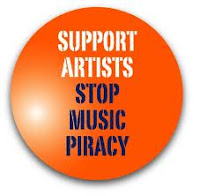 |
| SOURCE |
As a musician apart from entertaining people, your main objective is to sell as many albums as possible. But how will people buy your albums if they’ve never even heard of you?
There is no point in recording the greatest album of all time if no one even knows about you, you might as well have not even bothered recording. WHAT A WASTE!
Musicians are on the hunt for publicity and it’s nearly impossible and hard for the “not so famous” musicians to get attention from the media. Luckily for them, there are professionals known as Public Relations Practitioners or Publicists who know how to work with the media. Given the task on time, PRP’s and publicists can work wonders on a musician’s career within a blink of an eye. After all, these people are the binding rope between the musicians and the media.
Whether famous or not, or no matter how bad of a singer you are, the fact that people know you is HIGH PRIORITY and these professionals will make sure that you get media exposure at all times.
Take Lira for instance, she was originally known as a kwaito artist, she then changed to soul music and she became huge in the industry. Her PRP made sure that she got all the media exposure she could get in order to make people aware of Lira's new image.
When she finally made it in the soul music genre, you heard her songs on every radio station, she was on TV doing interviews, if it wasn’t interviews she was performing or involved in anti-piracy campaigns or just simply attending social events that had absolutely nothing to do with music.
Social media has affected the music industry in a positive way, as it has made the publicists job much more easier. Everybody was talking about her on facebook, twitter you name it, she was the talk of the town and she still is,because her prp or publicist is awake. Her publicists made sure that she was everywhere at all times building an image and acquainting herself with the public and the media.
Take Lira for instance, she was originally known as a kwaito artist, she then changed to soul music and she became huge in the industry. Her PRP made sure that she got all the media exposure she could get in order to make people aware of Lira's new image.
When she finally made it in the soul music genre, you heard her songs on every radio station, she was on TV doing interviews, if it wasn’t interviews she was performing or involved in anti-piracy campaigns or just simply attending social events that had absolutely nothing to do with music.
Social media has affected the music industry in a positive way, as it has made the publicists job much more easier. Everybody was talking about her on facebook, twitter you name it, she was the talk of the town and she still is,because her prp or publicist is awake. Her publicists made sure that she was everywhere at all times building an image and acquainting herself with the public and the media.
Ask your mom if she knows who Lira is and I bet you she won’t hesitate to say "yes I do", all thanks to her publicist who did an extraordinary job in getting people to eat, drink and sleep Lira.






